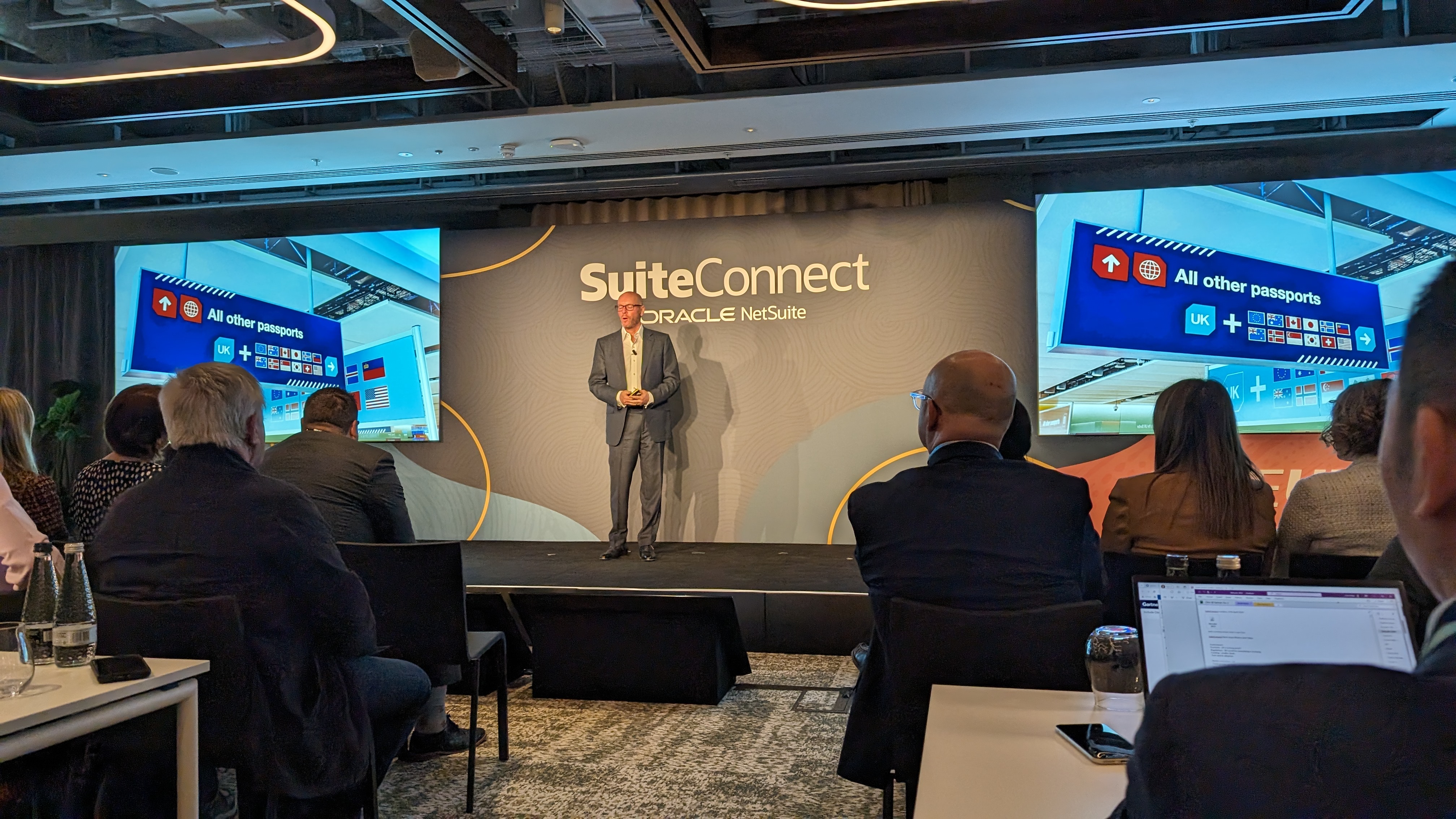[ad_1]
As AI becomes more of a common presence in my companies and organizations across the world, questions are inevitably being asked about the effect the technology will have on human jobs.
With its core task of taking large and complex sets of data, analyzing it to find trends or anomalies, and creating detailed reports, accountancy and finance sounds like a prime example of an industry where AI could supplant human workers – but is this the case?
Perhaps unsurprisingly, Oracle NetSuite has been at the forefront of integrating AI tools and services in its eponymous platform, revealing a host of new releases in recent months, but how is the company gearing up to tackle the age of AI?
Time for growth
“There’s an overall challenge when you want to rejuvenate your product, that it’s going to change how it works – it’s on us to make it as natural a transition as possible,” Evan Goldberg, EVP and founder of NetSuite, told us at the company’s recent SuiteConnect London event.
“We’re doing major changes to our user experience – we’ve been investing in it for seven years, and… we’ll keep showing more and more of it,” he added, “it’s meant to be easily adoptable, we’re thinking about the whole next-gen user experience…AI should be super-easy to adopt.”
The company is well set to monitor industry feeling on change and growth, with both Goldberg and Nicky Tozer, SVP EMEA at NetSuite, noting that things are looking rosy right now.
“Even though there is more optimism on growth – people are very cognizant for that growth to be efficient,” Goldberg notes.
“There’s still enough uncertainty – nobody is going out there and saying we’re just going to go out and spend.”
“People are optimistic that there is going to be improvement, but they aren’t sure when that is going to be,” Tozer adds, highlighting that customers are needing to justify ROI on technology such as AI at higher levels more than ever before – across both boards and investors.

“The mantra over the past few years has been about doing more with less,” Goldberg had said in his earlier keynote at the event, “that’s the goal of every technology advance, from the assembly line to the Internet, and that’s certainly the big goal of AI…You need to find your engine for growth.”
When we asked him about this idea of “doing more with less” and how it will actually work in practice, Goldberg notes that automation, and freeing up human workers for more useful tasks is the ultimate aim.
“That’s always the goal of automation – to be able to do things faster and easier – and now even sometimes better than you’ve been able to do them before,” he noted.
Goldberg uses the example of programmers as a role that AI could supposedly easily take over from real people, but, at present, AI seems to be doing far better at assisting them.
“AI tools are really good at writing code, but it turns out that there’s a lot of other things to do as a software engineer – and a lot of those are very high value tasks,” he notes.
“No technology advance so far has ended up with mass unemployment – so I think it’s a good bet that this one won’t either.”

Looking forward, NetSuite is confident that further growth is on the way, even as companies of all sizes look to pivot and get the most out of AI.
“What we will do is accentuate our existing advantages over competitors – we have the most extensive suite that is truly built from the ground up, for everything to work together,” Goldberg says.
“I’m excited about the fact things are changing so rapidly in the technology landscape, and we have spent much of the past few years putting ourselves in a position where we can leverage it really quickly, experiment, get the technology out to customers, iterate, revise it, and so on.”
[ad_2]
Source Article Link

